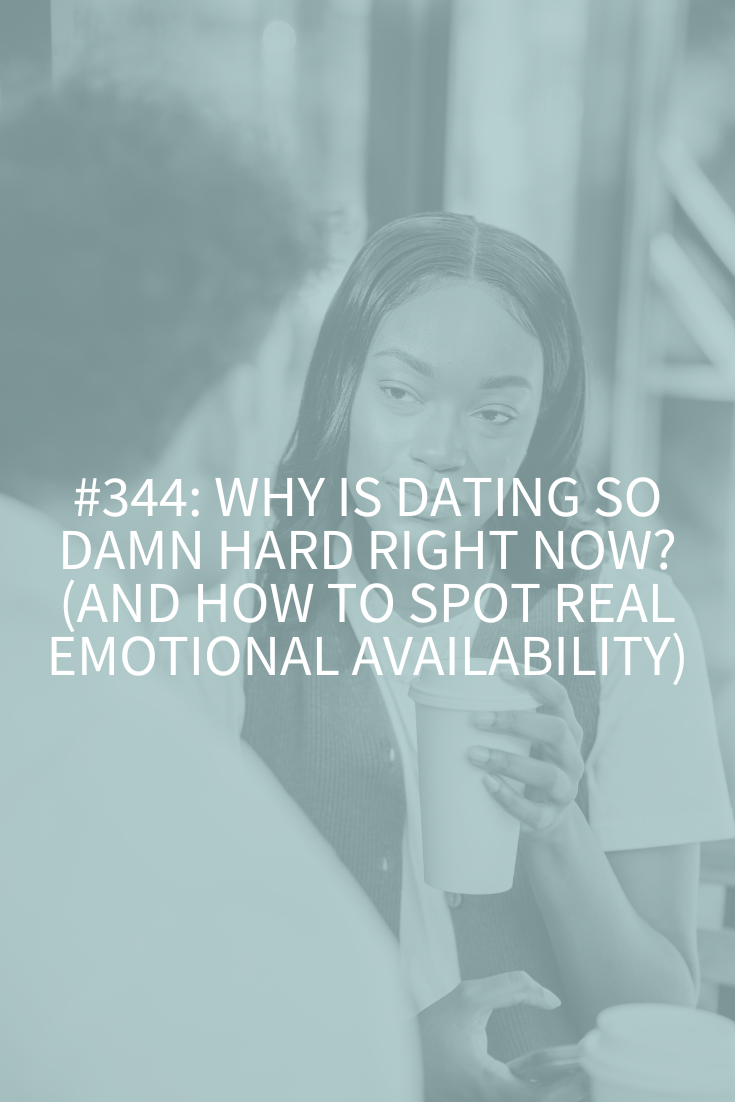
Let me give you a scenario. You’re at home working on a project. Maybe you’re the head of the yearbook committee at your kid’s preschool and you’re trying to figure out the software you’re supposed to use. Or maybe you’re working for yourself and you’re finishing a spreadsheet for an important client.
Either way, your partner comes in and the conversation goes something like this:
Your Partner: “I hate to bug you but I really need to know what you want to do for dinner because it’s getting late and the kids are getting cranky.”
You (not looking up from your computer screen): “Whatever you want is fine, I just need to finish this.”
Partner: “Well, when do you think you’ll be finished?”
You: “I don’t know exactly – I’ve got to finish this tonight.”
Partner: “Do you want us to just do dinner without you? I wish you had told me earlier, I would’ve planned differently.”
You (annoyed now): “I don’t have a crystal ball and I can’t give you an answer right now! You coming in here and bugging me is just making this take even longer!”
Your partner then leaves in a huff and now you’re even more annoyed!
I know you’ve had something like this happen (maybe even earlier today). And you know what? It didn’t need to happen at all. It could have gone completely differently if you were aware, in the moment, of that conversation.
If you were being mindful, here’s what would have happened:
- You would have stopped what you were doing when your partner entered the room.
- As you made full eye contact with your partner, you would have noticed that you were feeling irritable and anxious.
- You would have immediately noticed these feelings and allowed yourself to relax and let them move in front of you like a cloud.
- You would have known that these feelings weren’t “you” and that you had a choice in them and how you were reacting to this project you were working on.
- From that patient, calm, more “meta” place you would have had a completely different interaction with your partner and everyone would have been feeling much differently.
I’m not saying you wouldn’t have had to tell your partner that you needed to skip dinner because you misjudged how much time this project would take. And I’m not saying that your partner wouldn’t be upset that you were missing dinner. I’m saying the interaction would be much less charged, would not escalate into anything worse and that you’d be connecting instead of disconnecting.
The research shows that, even when couples do experience conflict, those who utilize attention training say they feel less stressed in those moments so their fights are shorter and less harmful.
Mindfulness does all this.
The issue is that we spend so much of our time doing one thing while thinking about another. These thoughts we’re having create feelings and these feelings drive our behavior – usually unconsciously. The issue is that you’re on autopilot way too often and you’re making decisions from this place and you don’t even realize it!
The problem isn’t that you’ve been intentionally making bad choices. The problem is that you haven’t even been aware you’ve been making choices! It’s like you’ve been sleepwalking. The good news is there’s a way to turn off autopilot and de-hypnotize yourself. You want to get in your life, so you can think and act at your best in moments, instead of reacting from old behaviors and habits. The key is to train your mind to be in the present: in the here and now.
The mind is like a muscle in this way: the more you direct it, the easier it gets to stay mindful.
Small Misses Are Important Too
This state of autopilot and distraction also means we miss the smaller opportunities to connect. Your partner comes home from work and they yell in, “I’m home” and you yell back, “How was your day?” and they yell back, “Fine.” You’ve both missed a huge opportunity to connect right there.
I always say that great relationships are built in a day, great relationships are built daily.
And they’re built through all these micro connections. You don’t want to miss out because you’re distracted. All this distraction and auto pilot leads to misunderstandings, frustration, anger, unhappiness and resentment.
Distraction is the termites of your relationship. It eats at the core and creates an environment where people feel unappreciated, unloved and dismissed.
Getting out of distraction is critical to creating a healthy, connected and happy relationship. The good news is that it’s not as hard as you think. All it takes is that you make mindfulness a habit.
Making Mindfulness a Habit
With mindfulness, you’re aware of what you’re thinking so you don’t let your thoughts and feelings blindly drive your actions and behaviors. Mindfulness puts you in control of your life and gives you a pause button, instead of just reacting to a given stimulus. It helps you know that feelings aren’t facts and you can respond thoughtfully to something instead of just reacting without thinking. So, if your partner leaves the toilet seat up again (stimulus), you don’t threaten divorce (unthinking reaction).
I’d like you to start a mindful practice by doing the following:
- Set a reminder on your phone to alert you 3x per day for one week. I don’t care what the times are, but try to spread them out (maybe 9:00, 1:00 and 6:00).
- When you hear the alert, simply notice where your mind was. What were you thinking about?
- Gently bring your focus back to the present (as non-judgmentally as possible). Be kind to yourself and just bring your awareness back to the present moment.
This exercise is the BEST bang for your buck. In just seconds you’ll get your here and now focus. By doing this exercise, you’ll train your brain so it will be mindful at other times without the cue of the reminder alert on your phone. It’s amazing – you’ll see results in just a day or two!
Enter your name and email below to get the Mindfulness Tips Starter Kit today.
Want more? Join my Newsletter and never miss a beat!
Get your weekly newsletter with all things Abby and life
Subscribe today to get my weekly thoughts, best practices and funny stories (you won’t believe my life!). This weekly reminder will keep you on the path to creating connected, happy relationships (especially the one with yourself)!






